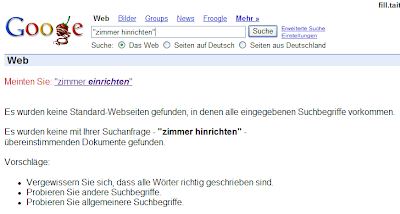I like to think that I can read german, but when I see these sentences (the translation and bold highlighting is from me) I give up.
Stephan Gray amazed his audience with "Homo electrificatus", A with threads of horse's hair on the ceiling secured free-swinging electrically charged lad
or
The discovery of Ewald Juergen von Kleist had been by the Physicist from Leiden, Petrus van Muschenbroek (1692-1761), author of the standard experimental physics textbook of his time, published.
My only consolation myself is the knowledge that I Mark Twain had similar difficulties. Twain claimed that some newspapers went to print without ever reaching the verb at the end of the sentence, and used this example to make his point:
But when he, upon the street, the (in-satin-and-silk-covered-now-very-unconstrained-after-the-newest-fashioned-dressed) government counselor's wife met
Twain then rants away,
A writer's ideas must be a good deal confused, a good deal out of line and sequence, when he starts out to say that a man met a counselor's wife in the street, and then right in the midst of this so simple undertaking halts these approaching people and makes them stand still until he jots down an inventory of the woman's dress. That is manifestly absurd
May I suggest that it is equally absurd to say that something yet to be revealed is being held from the ceiling by horse's hair, or to include an entire lifespan of 69 years between an auxiliary and a past participle. I really want to understand, but it is way beyond me.
For completeness, here are the original german sentences.
Der Englaender Stephen Gray (1666-1736) verblueffte sein Publikum mit dem "Homo electrificatus", einem mit Schnueren aus Rosshaar an der Decke befestigten frei schwebenden elektrisch aufgeladenen Knaben.
und
Die Entdeckung des Ewald Juergen von Kleist hatte der Leidener Physiker Petrus van Muschelbroek (1692-1761), Verfasser eines Standardlehrbuches der Experimentalphysik seiner Zeit, veroeffentlicht.
